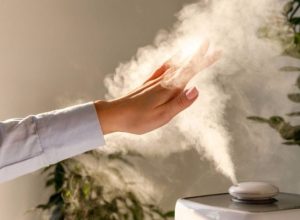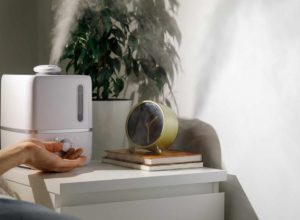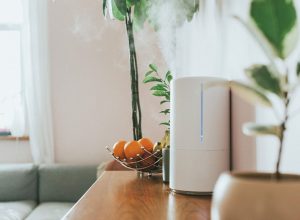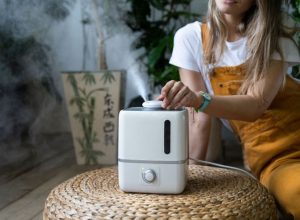Contents
Understanding Humidifiers
Humidifiers are devices designed to increase the humidity (moisture level) of the air in residential or commercial settings. They are widely used in regions experiencing dry air, especially during winter months or in arid climates. Maintaining the proper humidity level has various health benefits, including alleviating dry skin, reducing respiratory infections, and diminishing the risk of allergens. When selecting a humidifier, it’s important to consider the mechanism by which it operates. Two common types are ultrasonic humidifiers and evaporative humidifiers.
How Ultrasonic Humidifiers Work
Ultrasonic humidifiers utilize ultrasonic vibrations to produce a fine mist of water. Here’s a breakdown of their operation:
- Vibration Technology: These devices have a diaphragm that vibrates at an ultrasonic frequency, usually above 20 kHz. The vibrations create a fine haze from the water in the tank.
- Air Diffusion: The mist is then released into the air, increasing the humidity levels in an area.
- Cool Mist Production: The mist produced is usually cool, making these humidifiers particularly effective in warm environments.
Ultrasonic humidifiers are popular due to their quiet operation and energy efficiency.
How Evaporative Humidifiers Work
Evaporative humidifiers function based on the natural process of evaporation of water. Here’s how they operate:
- Wicking Filter: These devices use a wick filter to draw water from a reservoir. The filter absorbs the water effectively.
- Air Circulation: A fan then blows air through the moistened filter, promoting evaporation.
- Natural Humidity Release: As the water evaporates, humidity is added to the air. This method is self-regulating, as the evaporation rate decreases as humidity levels increase.
A Comparison of Ultrasonic and Evaporative Humidifiers
When choosing between ultrasonic and evaporative humidifiers, several factors come into play. The following table summarizes the key differences:
| Feature | Ultrasonic Humidifiers | Evaporative Humidifiers |
|---|---|---|
| Operation | Uses ultrasonic vibrations to create a cool mist. | Relies on a fan to blow air through a wet wick, promoting evaporation. |
| Noise Level | Generally quieter; some models operate silently. | Can produce noise due to the fan operation. |
| Maintenance | Requires regular cleaning to prevent mineral buildup; may need distilled water. | Wick filters need to be replaced periodically; simple tank cleaning. |
| Humidity Control | May over-humidify; needs a hygrometer for proper control. | Self-regulating; humidity increases naturally as moisture rises. |
| Energy Efficiency | More energy-efficient due to silent operation. | Generally consumes more power because of the fan. |
| Cost | Typically more expensive for initial purchase. | Usually less expensive upfront but ongoing filter costs. |
Consideration Factors for Selection
When deciding which type of humidifier is right for you, consider the following:
- Noise Sensitivity: If you are sensitive to noise or plan to use the humidifier in a bedroom, an ultrasonic model may be preferable.
- Maintenance Habits: Evaluate how much effort you are willing to put into maintenance and cleaning. Ultrasonic models may require more frequent cleaning to avoid mineral buildup.
- Humidity Levels: If you live in a very dry climate and need a significant increase in humidity, an ultrasonic humidifier might perform better under those circumstances. Conversely, if you want a natural and self-regulating option, an evaporative humidifier is ideal.
- Health Concerns: If allergies are a concern, consider that evaporative humidifiers can help trap allergens in the wick filter, ensuring cleaner mist release into the air.
- Cost Factors: Weigh the initial purchase price against long-term maintenance costs, including filter replacements for evaporative models.
Conclusion
Choosing between ultrasonic and evaporative humidifiers involves considering how each type meets your specific needs and lifestyle. Ultrasonic humidifiers offer quiet, efficient operation and are often the choice for those who need minimal maintenance. On the other hand, evaporative humidifiers provide a balanced, natural approach to increasing humidity, making them ideal for those seeking self-regulation and simplicity. Ultimately, understanding your preferences and the operational differences will guide you in making the most suitable choice for your environment.




